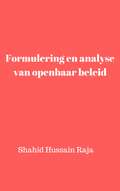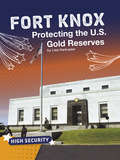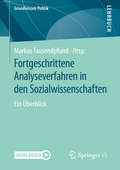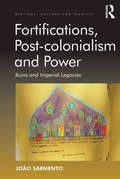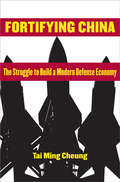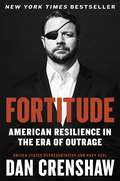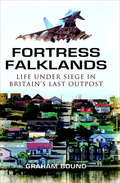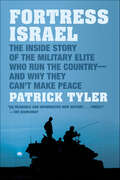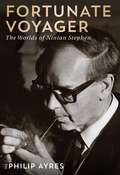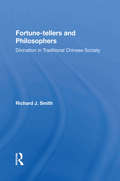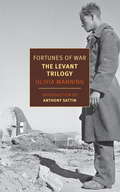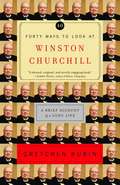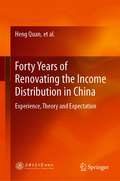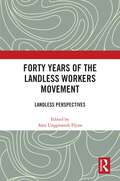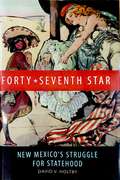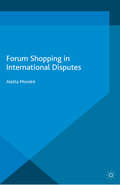- Table View
- List View
Formulering en analyse van openbaar beleid
by Shahid Hussain RajaGedurende de afgelopen jaren heeft openbaar beleid over de hele wereld om diverse redenen veel aandacht in de academische kringen gekregen. Naast het tonemende bewustzijn over de rol en het aanpakken van de veelzijdige uitdagingen waarmee elk land geconfronteerd wordt, is de belangrikste reden voor deze interesse in openbare beleidskwesties de steeds assertievere rol van de maatschappelijke organisaties en de media. Ze willen weten hoe openbaar beleid dat een gewone man raakt, geformuleerd wordt en de manier waarop het bestuursapparaat werkt, zodat ze ingelichte oordelen kunnen maken en ingelichte maatregelen kunnen nemen. De formulering van het openbaar beleid heeft de afgelopen drie of vier decennia een metamorfe verandering onderggan als gevolg van de snel globaliserende wereld. Er zijn minstens vier manieren waarop globalisering de beleidsformulering in elk land beïnvloedt. Ten eerste, dankzij sociale en elektronische media, worden kleine problemen die een decennium of zo geleden alleen op de achterpagina van een nationale krant geplaatst konden worden, breaking news op de belangrijkste wereldwijde kanalen, waardoor belangbehartiging en sympathie bewegingen in verschillende delen van de wereld ontstonden. Ten tweede, met de snel globaliserende wereld, worden mondiale kwesties zoals aantasting van het milieu, klimaatverandering, GMO, enz., die alleen in de wandelgangen van de macht besproken worden, in de salons van landen besproken en sterke belangbehartigingingsbewegingen onder de bevolking scheppen. Ten derde, verschuiven de centra van feitelijke macht en besluitvorming van lokaal naar mondiaal niveau met het bereik van binnenlandse belangengroepen naar hun sympathisanten in internationale organisaties, multinationals en die in de regeringen van mondiale mogendheden. Deze outreach stelt hen in staat hun eigen regering te dwingen om aan hun eisen te voldoen vanwege de economishe en politieke invload van de mondiale spelers.
Formulierung und Analyse Öffentlicher Vorschriften
by Shahid Hussain RajaDefiniert den Begriff der öffentlichen Ordnung und beschreibt ihre verschiedenen Facetten, listet die Schritte und Verfahren auf, die zur Formulierung einer öffentlichen Ordnung in einem Land erforderlich sind, erklärt die Merkmale einer guten öffentlichen Ordnung und endet mit der Untersuchung des Prozesses der öffentlichen Ordnung in einem Entwicklungsland wie Pakistan.
Forschungsdesign in der Politikwissenschaft: Eine Theorieorientierte Perspektive Mit Anwendungsbeispielen (Essentials)
by Steffen GanghofDas essential unterscheidet drei grundlegende Typen sozialwissenschaftlicher Forschungsdesigns: x-zentriert, y-zentriert und kontrastiv. Diese unterscheiden sich durch die Anzahl der betrachteten Theorien und dadurch, ob diese Theorien logisch konkurrierend oder komplementär sind. Keines der drei Designs ist den anderen eindeutig überlegen, da sie unterschiedliche Annahmen treffen und unterschiedliche Zielsetzungen verfolgen. Sie können sich deshalb sinnvoll ergänzen, auch innerhalb einzelner Studien, wenn dabei bestimmte Fallstricke beachtet werden. Das essential diskutiert die drei Designs anhand von 14 qualitativen und quantitativen Beispielstudien aus der Politikwissenschaft und den internationalen Beziehungen.
Forschungsstrategien in den Sozialwissenschaften: Eine Einführung
by Markus TausendpfundTrotz unterschiedlicher Themen und Fragestellungen sind Forschende und Studierende bei der Durchführung eines Forschungsprojekts immer wieder mit vergleichbaren Herausforderungen konfrontiert: eine relevante Forschungsfrage muss entwickelt und der meist umfangreiche Forschungsstand prägnant präsentiert werden. Daran anknüpfend müssen die zentralen Konzepte eines Forschungsprojekts spezifiziert und valide Operationalisierungen dieser Konzepte entwickelt werden. Schließlich müssen Untersuchungsobjekte ausgewählt und die geeignete Untersuchungsmethode festgelegt werden. Dieser Band behandelt die typischen Herausforderungen eines sozialwissenschaftlichen Forschungsprojekts und bietet Informationen, um diese Herausforderungen (besser) meistern zu können.
Fort Knox: Protecting the U.S. Gold Reserves (High Security)
by Lisa HarkraderThe United States keeps its gold safe at Fort Knox. How is this done? There are fences, locks, guards, and more. Learn more about this high-security place!
Fortgeschrittene Analyseverfahren in den Sozialwissenschaften: Ein Überblick (Grundwissen Politik)
by Markus TausendpfundRegression, Faktorenanalyse, Qualitative Comparative Analysis oder auch Inhaltsanalyse – der Band gibt einen Überblick über wichtige Analyseverfahren, die häufig genutzt werden, um eine sozialwissenschaftliche Forschungsfrage zu bearbeiten. Dabei werden die einzelnen Verfahren nicht abstrakt dargestellt, sondern jeweils an konkreten sozialwissenschaftlichen Fragestellungen illustriert. Zudem werden die Voraussetzungen der Verfahren erläutert sowie Vor- und Nachteile diskutiert. Die Auseinandersetzung mit den unterschiedlichen Verfahren soll einerseits die passive Methodenkompetenz fördern und andererseits das Interesse wecken, sich intensiver mit den Verfahren zu beschäftigen.Zusätzliche Fragen per App: Laden Sie die Springer Nature Flashcards-App kostenlos herunter und nutzen Sie exklusives Zusatzmaterial, um Ihr Wissen zu prüfen.
Fortifications, Post-colonialism and Power: Ruins and Imperial Legacies (Heritage, Culture and Identity)
by João SarmentoFor more than 500 years, the Portuguese built or adapted fortifications along the coasts of Africa, Asia and South America. At a macro scale, mapping this network of power reveals a gigantic territorial and colonial project. Forts articulated the colonial and the metropolitan, and functioned as nodes in a mercantile empire, shaping early forms of capitalism, transforming the global political economy, and generating a flood of images and ideas on an unprecedented scale. Today, they can be understood as active material legacies of empire that represent promises, dangers and possibilities. Forts are marks and wounds of the history of human violence, but also timely reminders that buildings never last forever, testimonies of the fluidity of the material world. Illustrated by case studies in Morocco, Cape Verde, São Tomé and PrÃncipe and Kenya, this book examines how this global but chameleonic network of forts can offer valuable insights into both the geopolitics of Empire and their postcolonial legacies, and into the intersection of colonialism, memory, power and space in the postcolonial Lusophone world and beyond.
Fortifying China: The Struggle to Build a Modern Defense Economy
by Tai Ming CheungFortifying China explores the titanic struggle to turn China into an aspiring world-class military technological power. The defense economy is leveraging the country's vibrant civilian economy and gaining access to foreign sources of technology and know-how. Drawing on extensive Chinese-language sources, Tai Ming Cheung explains that this transformation has two key dimensions. The defense economy is being reengineered to break down bureaucratic barriers and reduce the role of the state, fostering a more competitive and entrepreneurial culture to facilitate the rapid diffusion and absorption of technology and knowledge. At the same time, the civilian and defense economies are being integrated to form a dual-use technological and industrial base.In Cheung's view, the Chinese authorities believe this strategy will play a key role in supporting long-term defense modernization. For China's neighbors and the United States, understanding China's technological, industrial, and military capabilities is critical to the formulation of economic and security policies. Fortifying China provides crucial insight into the impact of China's dual-use technology strategy. Cheung's "systems of innovation" framework considers the structure, dynamics, and performance of the defense economy from a systems-level perspective.
Fortitude: American Resilience in the Era of Outrage
by Dan CrenshawJordan Peterson's Twelve Rules for Life meets Jocko Willink and Leif Babin's Extreme Ownership in this tough-love leadership book from a Navy SEAL and rising star in Republican politics. <P><P>In 2012, on his third tour of duty in Afghanistan, an improvised explosive device left Dan Crenshaw's right eye destroyed and his left blinded. Only through the careful hand of his surgeons, and what doctors called a miracle, did Crenshaw's left eye recover partial vision. roadside And yet, he persevered, completing two more deployments. Why? There are certain stories we tell ourselves about the hardships we face - we can become paralyzed by adversity or we can adapt and overcome. We can be fragile or we can find our fortitude. Crenshaw delivers a set of lessons to help you do just that. Most people's everyday challenges aren't as extreme as surviving combat, and yet our society is more fragile than ever: exploding with outrage, drowning in microaggressions, and devolving into divisive mob politics. The American spirit -long characterized by grit and fortitude - is unraveling. We must fix it. <P><P>That's exactly what Crenshaw accomplishes with FORTITUDE. This book isn't about the problem, it's about the solution. And that solution begins with each and every one of us. We must all lighten up, toughen up, and begin treating our fellow Americans with respect and grace. FORTITUDE is a no-nonsense advice book for finding the strength to deal with everything from menial daily frustrations to truly difficult challenges. More than that, it is a roadmap for a more resilient American culture. <P><P>With meditations on perseverance, failure, and finding much-needed heroes, the book is the antidote for a prevailing "safety culture" of trigger warnings and safe spaces. Interspersed with lessons from history and psychology is Crenshaw's own story of how an average American kid from the Houston suburbs went from war zones to the halls of Congress-and managed to navigate his path with a sense of humor and an even greater sense that, no matter what anyone else around us says or does, we are in control of our own destiny. <P><P><b>A New York Times Bestseller</b>
Fortress America
by Matthew BrzezinskiHeavily armed guards at the entrances to malls and restaurants. Citizens deemed "suspicious" taken away without formal charges or legal counsel. Would a "safe" America even look like America anymore? One of the few journalists to penetrate the new counter terror initiative, Matthew Brzezinski offers an insider's look at the new technology, laws, tactics, and persistent vulnerabilities of the post-9/11 era. The result is this startling, sometimes controversial look at what it will take to achieve genuine homeland security and what it may be like to live inside Fortress America Is this what a safe America will look like? * Cameras at airport ticket counters that can tell if you are stressed * Satellites and surveillance equipment that can see through the walls of your home * Computer programs capable of spotting abnormal behavior * National ID "smart" cards encoding your personal, financial, and medical information required for electronic police spot checks In the aftermath of September 11, a massive effort has been launched to protect us from another terrorist attack. But the costs of safeguarding our country will require not only unprecedented amounts of funding, but dramatic changes in the way Americans lead their everyday lives. Is this the new price of freedom? * Mandatory chips installed in all cell phones and automobiles that can locate you instantly within a dozen yards * Patriot II legislation that can arbitrarily revoke citizenship and allow terrorist sympathizers to vanish without a trace * Transponder implants that could be injected into the bodies of prisoners, foreign nationals, and perhaps one day all US citizens... Such high-tech measures are not the stuff of science fiction but in many cases are already being implemented. As Brzezinski discovers, similar measures have been in use for years in security states like Israel. But will Americans trade liberty for security? Will they have a choice? And can even the most radical measures insure that a 9/11 style attack won't happen again? From an unheeded warning six years before the WTC disaster to dramatic war-game scenarios secretly conducted at Andrews Air Force Base and chilling on-site simulations of actual attacks, Fortress America paints a sobering picture of the future of freedom...and what life may be like in a maximum security state. From the Hardcover edition.
Fortress America: The American Military and the Consequences of Peace
by William GreiderThe economic consequences of a large peace-time military.
Fortress Falklands: Life Under Siege in Britain's Last Outpost
by Graham BoundThe Falkland Islands sprang to fame in 1982, when Argentine Forces invaded and occupied them. British rule was re-established following an intensely violent war. But, as the 30th anniversary of that conflict approaches, the causes of conflict in the Falklands have not been resolved. Simmering tensions means that a powerful military machine remains on the islands, and its guard is never relaxed. The UK has some of its most modern and powerful defense assets there, and on permanent standby. These include Eurofighter Typhoon interceptors; ground to air missiles; mountaintop radar sites, and destroyers and frigates. In addition, the islanders themselves have a potent infantry defense force. Graham Bounds book Fortress Falklands examines the defenses of the islands today and the ongoing need for vigilance.Relations with Argentina have deteriorated since the discovery of oil in Falklands waters and a boom in the Falklands economy. In response, Buenos Aires has established a ban on shipping links between South America and the islands, and they exploit every opportunity to press their case for sovereignty. Islanders believe they are under economic siege.
Fortress Falklands: Life Under Siege in Britain's Last Outpost
by Graham BoundThe Falkland Islands sprang to fame in 1982, when Argentine Forces invaded and occupied them. British rule was re-established following an intensely violent war. But, as the 30th anniversary of that conflict approaches, the causes of conflict in the Falklands have not been resolved. Simmering tensions means that a powerful military machine remains on the islands, and its guard is never relaxed. The UK has some of its most modern and powerful defense assets there, and on permanent standby. These include Eurofighter Typhoon interceptors; ground to air missiles; mountaintop radar sites, and destroyers and frigates. In addition, the islanders themselves have a potent infantry defense force. Graham Bounds book Fortress Falklands examines the defenses of the islands today and the ongoing need for vigilance.Relations with Argentina have deteriorated since the discovery of oil in Falklands waters and a boom in the Falklands economy. In response, Buenos Aires has established a ban on shipping links between South America and the islands, and they exploit every opportunity to press their case for sovereignty. Islanders believe they are under economic siege.
Fortress Israel: The Inside Story of the Military Elite Who Run the Country—and Why They Can't Make Peace
by Patrick Tyler"Once in the military system, Israelis never fully exit," writes the prizewinning journalist Patrick Tyler in the prologue to Fortress Israel. "They carry the military identity for life, not just through service in the reserves until age forty-nine . . . but through lifelong expectations of loyalty and secrecy." The military is the country to a great extent, and peace will only come, Tyler argues, when Israel's military elite adopt it as the national strategy.Fortress Israel is an epic portrayal of Israel's martial culture—of Sparta presenting itself as Athens. From Israel's founding in 1948, we see a leadership class engaged in an intense ideological struggle over whether to become the "light unto nations," as envisioned by the early Zionists, or to embrace an ideology of state militarism with the objective of expanding borders and exploiting the weaknesses of the Arabs. In his first decade as prime minister, David Ben-Gurion conceived of a militarized society, dominated by a powerful defense establishment and capable of defeating the Arabs in serial warfare over many decades. Bound by self-reliance and a stern resolve never to forget the Holocaust, Israel's military elite has prevailed in war but has also at times overpowered Israel's democracy. Tyler takes us inside the military culture of Moshe Dayan, Yitzhak Rabin, Ariel Sharon, and Benjamin Netanyahu, introducing us to generals who make decisions that trump those of elected leaders and who disdain diplomacy as appeasement or surrender.Fortress Israel shows us how this martial culture envelops every family. Israeli youth go through three years of compulsory military service after high school, and acceptance into elite commando units or air force squadrons brings lasting prestige and a network for life. So ingrained is the martial outlook and identity, Tyler argues, that Israelis are missing opportunities to make peace even when it is possible to do so. "The Zionist movement had survived the onslaught of world wars, the Holocaust, and clashes of ideology," writes Tyler, "but in the modern era of statehood, Israel seemed incapable of fielding a generation of leaders who could adapt to the times, who were dedicated to ending . . . [Israel's] isolation, or to changing the paradigm of military preeminence."Based on a vast array of sources, declassified documents, personal archives, and interviews across the spectrum of Israel's ruling class, FortressIsrael is a remarkable story of character, rivalry, conflict, and the competing impulses for war and for peace in the Middle East.
Fortress Power: Hostile Designs and the Politics of Spatial Control
by Derek S. DenmanA compelling treatise on the relationship between power and enclosureFortress Power presents a genealogy of fortification as a material and political technology intent on obstruction, tracing its implementation across battlefields, borders, and urban environments. Drawing on the influential work of philosophers Michel Foucault and Giorgio Agamben, Derek S. Denman places the fortress alongside the archetypes of the prison and the camp, citing them as paradigmatic of how space is transformed into a tool of domination and control. Focusing on the defensive architecture of bastion fortresses, urban design, and border landscapes, Fortress Power charts the rise of a form of governance grounded in hostility, extending the scope of its subject from a piece of military construction to a much broader political concept. Detailing how power manifests in everything from city centers to international boundaries, the book analyzes the logic of fortification as it moves through various contexts in the advancement of surveillance, exploitation, warfare, and political authority. Through a unique blend of architecture and design studies, political theory, international relations, geography, and migration studies, Denman outlines the disquieting legacy of the fortress to highlight its role in the formation of modern government and the enactment of violence. In an era marked by the increasing prevalence of authoritarian power and conflicting geopolitical boundaries, he presents an insightful investigation of the weaponization of the built environment.
Fortunate Voyager: The Worlds of Ninian Stephen
by Philip AyresOne life, many roles: soldier, brilliant barrister, High Court judge, Governor-General, Australian diplomat, mediator in Northern Ireland, member of the first war crimes tribunal since Nuremburg and Tokyo, head of UN and Commonwealth missions to crisis zones from Cambodia to Burma to Bangladesh, Sir Ninian Stephen is the recipient of five knighthoods and the most honoured Australian in history - and yet precisely because so much of his work was international it has rarely received the notice it deserves in his home country. In this, the first whole-of-life biography of the subject, Philip Ayres traces Stephen's early life in Scotland, England and around continental Europe, from Edinburgh and the Highlands to the spa towns of France and Germany, from the ski runs above Montreux to the Nuremberg Rally of 1938, including the details of his education at outstanding British and Swiss schools and his highly unorthodox "family" life as an only child with an absent father, the details of which, like so much here, have never previously been revealed. All this constitutes the unknown Ninian Stephen, and yet so much else in this book is new: the wartime Stephen, the barrister Stephen, and all the other aspects of his life traced in precise yet dramatic detail in a book whose momentum is generated through unique access to the full resources of the subject's personal papers.
Fortune Favors the Bold: What We Must Do to Build a New and Lasting Global Prosperity
by Lester C. ThurowEconomic analysis applied to planning the future.
Fortune-tellers and Philosophers: Divination In Traditional Chinese Society
by Richard J SmithProviding an analysis of Chinese divination as a means of organizing and interpreting reality, Richard Smith examines a wide variety of mantic techniques - from the use of the hallowed Yjing to such popular practices as siting (geomancy), astrology, numerology, physiognomy, the analysis of written characters, meteorological divination, the use of mediums (including spirit-writing), and dream interpretation. As he explains the pervasiveness and tenacity of divination in China, the author explores not only the connections between various mantic techniques but also the relationship between divination and other facets of Chinese culture, including philosophy, science and medicine. He discusses the symbolism of divination, its aesthetics, its ritual aspects, and its psychological and social significance, pointing out that in traditional China divination helped to order the future, just as history helped to order the past, and rituals the present.
Fortunes of War: The Levant Trilogy
by Olivia Manning Anthony SattinIn The Levant Trilogy Olivia Manning returns to the story of the young English couple Guy and Harriet Pringle, last seen, at the end of The Balkan Trilogy, departing from Athens ahead of the invading Nazi army. Now, in the spring of 1941, they arrive in Egypt as Rommel's forces slowly but surely approach Cairo across the Sahara from the west. Will the city fall? In the streets the people contemplate welcoming a new set of occupiers, while European refugees and well-heeled Anglo-Egyptians prepare to pack their bags. And at night, everyone who is anyone flocks to the city's famed hotels and seedy cabarets, seeking one last dance before the tanks roll in. Manning describes the Pringles' ever complicated marriage and their motley group of friends and foes with the same sharp eye that earned The Balkan Trilogy a devoted following. And she also traces the fortunes of a marvelously drawn new character, Simon Boulderstone, a twenty-year-old recruit who must grapple with the boredom, chaos, and fleeting exhilaration of war.
Forty Ways to Look at Winston Churchill
by Gretchen RubinWarrior and writer, genius and crank, rider in the British cavalry's last great charge and inventor of the tank--Winston Churchill led Britain to fight alone against Nazi Germany in the fateful year of 1940 and set the standard for leading a democracy at war. Like no other portrait of its famous subject, Forty Ways to Look at Winston Churchill is a dazzling display of facts more improbable than fiction, and an investigation of the contradictions and complexities that haunt biography. Gretchen Craft Rubin gives readers, in a single volume, the kind of rounded view usually gained only by reading dozens of conventional biographies. With penetrating insight and vivid anecdotes, Rubin makes Churchill accessible and meaningful to twenty-first-century readers with forty contrasting views of the man: he was an alcoholic, he was not; he was an anachronism, he was a visionary; he was a racist, he was a humanitarian; he was the most quotable man in the history of the English language, he was a bore.In crisp, energetic language, Rubin creates a new form for presenting a great figure of history--and brings to full realization the depiction of a man too fabulous for any novelist to construct, too complicated for even the longest narrative to describe, and too valuable ever to be forgotten. From the Hardcover edition.
Forty Years of Renovating the Income Distribution in China: Experience, Theory and Expectation
by Heng QuanThis book focuses on an attractive theoretical subject as well as a practical issue, which analyses the inner relationship of economic growth and income distribution in China. During the forty years of China’s reform and opening up many influential changes occurred in the structure of the national income distribution, the mechanism of income distribution, and the policies of distributing income with the high-speed development of China. From historical and regional analysis, this book collects a good deal of data and objectively summarizes the practice and experience of renovation of income distribution in China. Based upon the summary and conclusion above, the book paraphrases and creates a conceptual mechanism, a basic theory, and a basic methodology of socialism with Chinese characteristics and discovers the internal rules of the changing relationship between high-speed economic development and income distribution in China to guide and facilitate the further improvement and innovative development of income distribution in China. Furthermore, the book enriches the political economy theory of socialism with Chinese characteristics in the aspect of practical experience, as well as theory.
Forty Years of the Landless Workers Movement: Landless Perspectives
by Rebecca Tarlau Alex Ungprateeb Flynn Banzeiros Jonathan DeVore Mel Gurr Claire Lagier Nashieli Rangel Loera Alessandro Mariano David Simbsler Bárbara WagnerForty Years of the Landless Workers Movement: Landless Perspectives presents ethnographic insights into Latin America’s largest social movement as it celebrates its 40th anniversary. The Landless Workers Movement (Movimento dos Trabalhadores Rurais Sem Terra - MST), with over 1.5 million members, has been fighting for agrarian reform since 1984. In its 40-year struggle, the movement has secured land for over 350,000 families and become a worldwide beacon for progressive politics. Its enduring presence is a remarkable feat; while other movements have come and gone, the MST continues to be a steadfast force in the pursuit of social justice and environmental sustainability. How has the MST managed to endure in a country dominated by agribusiness and characterized by hostile politics? The rationale of this collection is to answer such questions from an ethnographic standpoint, connecting personal stories to theorizations of land and struggle. The detailed accounts of this book’s contributions sit in dialogue with the longitudinal commitment of the contributors, many of whom have been working with the movement over a period of decades. Such a commitment allows this book to speak to a 40-year timeframe, creating an approach that points to broader conclusions and possible futures. With contributors from Brazil, Europe, and North America, this book connects lived experiences with wider political questions pertaining to global mass mobilization. Offering a fresh perspective on one of the world’s most iconic social movements, this volume celebrates the durability of the MST and speaks to the productive tensions that characterize its lived, vital, and daily struggle for agrarian reform. The material will be of interest to scholars of anthropology, sociology, political science, Latin American studies and beyond.
Forty-Seventh Star
by David V. HoltbyNew Mexico was ceded to the United States in 1848, at the end of the war with Mexico, but not until 1912 did President William Howard Taft sign the proclamation that promoted New Mexico from territory to state. Why did New Mexico's push for statehood last sixty-four years? Conventional wisdom has it that racism was solely to blame. But this fresh look at the history finds a more complex set of obstacles, tied primarily to self-serving politicians. Forty-Seventh Star, published in New Mexico's centennial year, is the first book on its quest for statehood in more than forty years. David V. Holtby closely examines the final stretch of New Mexico's tortuous road to statehood, beginning in the 1890s. His deeply researched narrative juxtaposes events in Washington, D. C. , and in the territory to present the repeated collisions between New Mexicans seeking to control their destiny and politicians opposing them, including Republican U. S. senators Albert J. Beveridge of Indiana and Nelson W. Aldrich of Rhode Island. Holtby places the quest for statehood in national perspective while examining the territory's political, economic, and social development. He shows how a few powerful men brewed a concoction of racism, cronyism, corruption, and partisan politics that poisoned New Mexicans' efforts to join the Union. Drawing on extensive Spanish-language and archival sources, the author also explores the consequences that the drive to become a state had for New Mexico's Euro-American, Nuevomexicano, American Indian, African American, and Asian communities. Holtby offers a compelling story that shows why and how home rule mattered--then and now--for New Mexicans and for all Americans.
Forum Shopping in International Adjudication
by Luiz Eduardo SallesForum shopping, which consists of strategic forum selection, parallel litigation and serial litigation, is a phenomenon of growing importance in international adjudication. Preliminary objections (or a party's placement of conditions on the existence and development of the adjudicatory process) have been traditionally conceived as barriers to adjudication before single forums. This book discusses how adjudicators and parties may refer to questions of jurisdiction and admissibility in order to avoid conflicting decisions on overlapping cases, excessive exercises of jurisdiction and the proliferation of litigation. It highlights an emerging, overlooked function of preliminary objections: transmission belts of procedure-regulating rules across the 'international judiciary'. Activating this often dormant, managerial function of preliminary objections would nurture coordination of otherwise independent and autonomous tribunals.
Forum Shopping in International Disputes (Transformations of the State)
by Aletta MondréIn a dispute, governments weigh up their options when selecting between various dispute settlement mechanisms. By scrutinising the interaction of institutional design with state interests, this book analyses why particular forums are selected in maritime boundary disputes.
